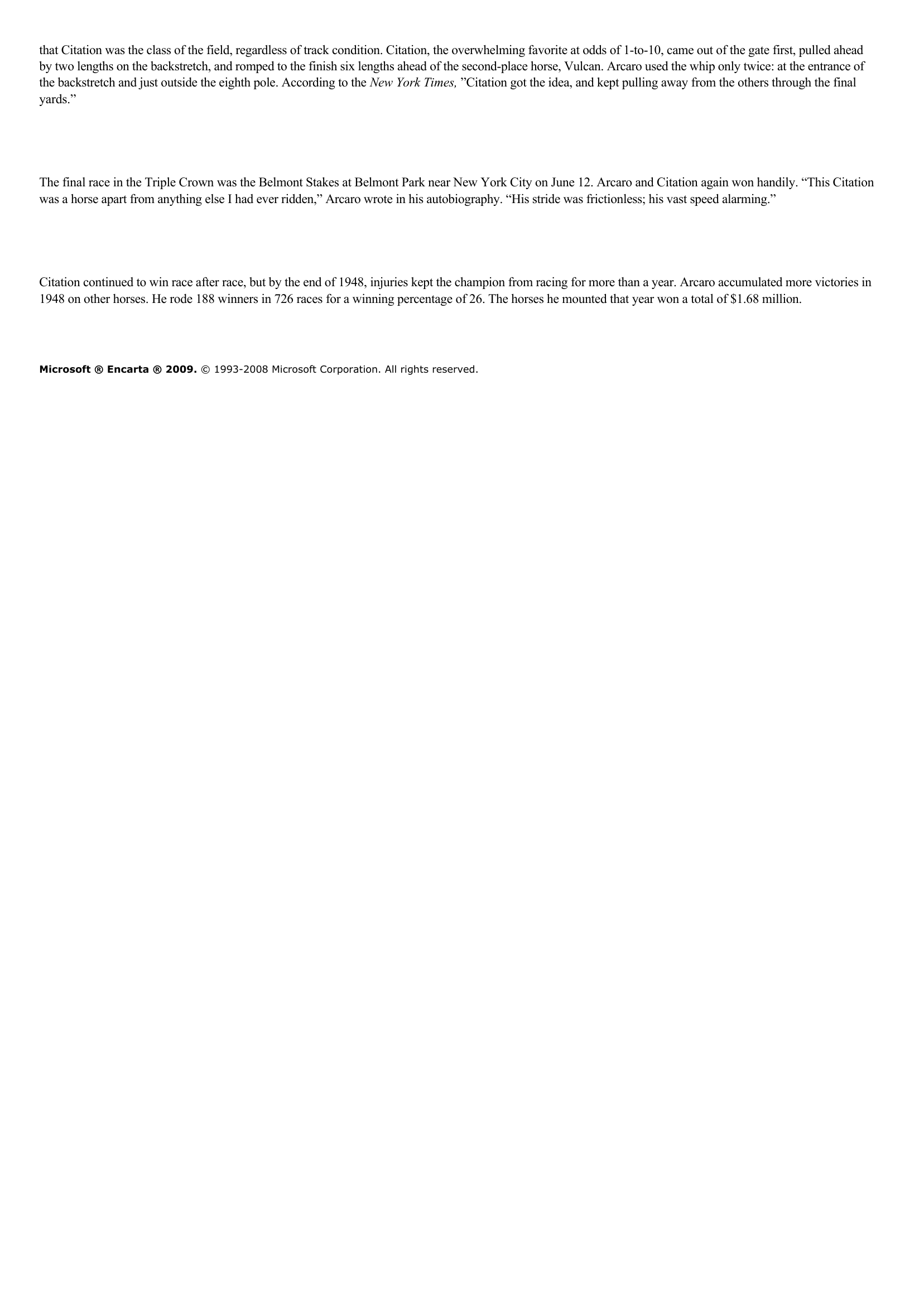Arcaro Wins the Triple Crown.
Publié le 14/05/2013
Extrait du document
«
that Citation was the class of the field, regardless of track condition.
Citation, the overwhelming favorite at odds of 1-to-10, came out of the gate first, pulled aheadby two lengths on the backstretch, and romped to the finish six lengths ahead of the second-place horse, Vulcan.
Arcaro used the whip only twice: at the entrance ofthe backstretch and just outside the eighth pole.
According to the New York Times, ”Citation got the idea, and kept pulling away from the others through the final yards.”
The final race in the Triple Crown was the Belmont Stakes at Belmont Park near New York City on June 12.
Arcaro and Citation again won handily.
“This Citationwas a horse apart from anything else I had ever ridden,” Arcaro wrote in his autobiography.
“His stride was frictionless; his vast speed alarming.”
Citation continued to win race after race, but by the end of 1948, injuries kept the champion from racing for more than a year.
Arcaro accumulated more victories in1948 on other horses.
He rode 188 winners in 726 races for a winning percentage of 26.
The horses he mounted that year won a total of $1.68 million.
Microsoft ® Encarta ® 2009. © 1993-2008 Microsoft Corporation.
All rights reserved..
»
↓↓↓ APERÇU DU DOCUMENT ↓↓↓
Liens utiles
- Thoroughbred Racing's Triple Crown Winners This race is for three-year-olds who have won thoroughbred racing's Triple Crown of the Kentucky Derby, Preakness Stakes, and Belmont Stakes in the same year.
- Thoroughbred Racing's Triple Crown Winners.
- Mazeroski's Home Run Wins the Series.
- Austin Wins the US Open.
- Butcher Wins the Iditarod.

































